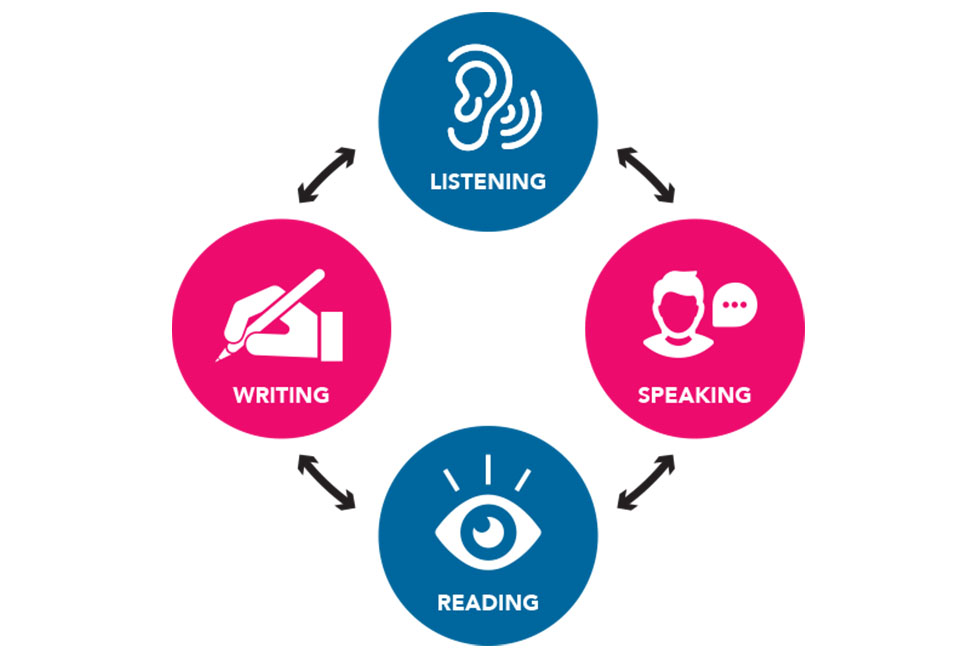Study in UK
Study in UK can be an exciting and rewarding experience for international students. The UK is home to some of the world’s oldest and most prestigious universities, offering a wide range of academic programs and research opportunities.
To study in the UK, international students typically need to obtain a Tier 4 (General) student visa. To apply for this visa, students must have a confirmed place at a UK university or educational institution, prove their proficiency in English, and demonstrate sufficient funds to cover tuition fees and living expenses.
The UK education system is divided into four main levels: primary education, secondary education, further education, and higher education. Higher education in the UK is typically delivered through universities and higher education colleges, and there are two main types of degrees: undergraduate and postgraduate.
Undergraduate degrees in the UK usually take three years to complete, while some courses such as engineering, medicine, and architecture may take up to four years. Postgraduate degrees, such as Master’s degrees, typically take one year to complete, while PhD programs can take up to three or four years.
Overall, studying in the UK offers a unique and enriching educational experience, with access to world-class academic institutions and a diverse range of cultural experiences.
Why Study in UK

1. UK universities are at the top of international rankings
The quality of education and academic excellency are some of the main factors that make the UK one of the most popular study destinations in the world.
Every year, international university rankings evaluate higher education institutions and create lists based on factors like international friendliness, student-focus, average income of graduates, number of published research papers, and so on.
And every year, UK universities are in the top 10, highlighting their continuous efforts and focus on providing students with the best experience and the most relevant knowledge.
2. Use scholarships and grants to support your studies
Many universities, private organisations, NGOs, and governmental institutions offer scholarships and grants to international students.
Each scholarship or grant has different criteria; some are awarded for academic success, others for financial needs, and some for students coming from developing or underdeveloped nations.
Don’t hesitate to apply for financial aid or contact your university for more information. You can use the money you end up saving on other passions, interests, or a personal savings account.
3. Learn the Queen’s English
The Queen’s English, also referred to as BBC English, is the highest standard of English one can speak.
It includes Received Pronunciation, which is a specific accent that is used by the Queen and other people who study and achieve a certain level of English mastery. It’s the kind of accent that you hear in movies, which attracts people’s attention thanks to its posh quality and a perfectly correct grammar.
While you don’t need to speak the Queen’s English to live in the UK, it is much easier to learn it while studying there. It’s also a cool way to impress your friends or acquaintances and stand out when you speak in English.
4. Develop yourself in a multicultural environment
The United Kingdom welcomes over 400,000 international students every year. These students come from all over the world, bringing in their unique habits, ways of life, and perspective.
This massive influx of international students contributes to the creation of an international-friendly environment, where anybody can thrive and learn more about other nations and cultures.
5. Discover the beauty of the United Kingdom
The UK is made up of England, Scotland, Wales, and Northern Ireland — and all of them have unique attractions for international students and tourists in general.
When you’re not in classes, you can spend the time visiting the Tower of London, the British Museum, the London Eye, the Big Gen, Stonehenge, Loch Ness (famous for Nessie, the Loch Ness Monster), the Snowdonia National Park, etc.
How to Apply in United Kingdom
If you’ve decided to study at a university in United Kingdom, you will have to gather the right documents to prove that you fit the university requirements. Provide complete personal information, previous qualifications, financial information, and a personal statement.
What documents do I need to provide to apply in United Kingdom?
You’ll be asked to present supporting documents including:
- birth certificate;
- your passport or national identity card;
- reference letters from past employers or teachers;
- copies of past diplomas or certificates, including your Bachelor’s degree;
- academic transcripts.
If a document/statement is not written in English a translation may be required, from a recognised translator – confirmed by an official stamp. In some cases, universities may ask for additional documents after you have submitted your application. To avoid delays or missed deadlines send your evidence with plenty of time in advance.
Prove your English skills

To show that you have the right English skills, you’ll have to also present a IELTS, TOEFL or C1 Advanced language certificate. If you don’t meet the minimum language scores you will have to improve them by taking an English preparation course.
Additional test scores
Depending on the Master’s you want to go to, you might also be asked to provide an additional test such as UKCAT, BMAT or LNAT.
Application deadlines for Study in UK
The deadlines for applying to a Master’s in the UK are usually during the summer (June), or in winter (January). Many universities have rolling applications, which means you can apply whenever you are ready.
Living in United Kingdom

While preparing to study in the United Kingdom, an important step is determining what type of budget you’ll need for your studies. This budget includes tuition fees, accommodation, travelling, and other living expenses. Let’s have a closer look!
Living costs for study in UK
For students in the UK, the costs of living vary according to each region, with Northern Ireland being the cheapest, followed by Wales and England (except London which is the most expensive city in the UK). Scotland and London city are the most expensive in terms of living costs.
Living costs in cities in England:
- Birmingham: 765 – 1,130 GBP/month
- Leeds: 635 – 1,100 GBP/month
- London: 1,140 – 2,100 GBP/month
Living costs in cities in Scotland:
- Edinburgh: 725 – 1,170 GBP/month
- Glasgow: 620 – 1,000 GBP/month
- Dundee: 785 – 1,500 GBP/month
Living costs in cities in Wales:
- Cardiff: 630 – 1,065 GBP/month
- Newport: 740 – 1,400 GBP/month
- Swansea: 730 – 1,380 GBP/month
Living costs in cities in Northern Ireland:
- Belfast: 530 – 875 GBP/month
Tuition fees in the UK
Average tuition fees for Masters in the United Kingdom range from 5,000 to 17,000 GBP per year. However, for some specialised degrees, such as Medicine, Law or Business, you should expect higher tuition fees (over 20,000 GBP per year). As always, private universities are more expensive than public institutions.
If you are an EU/EEA student, 2020 is the last year when you will be charged the same tuition as UK students and when you can apply for a student loan. Learn more about tuition fees in the UK after Brexit.
Accommodation costs
Student accommodation ranges from 500 to 1,200 GBP per month, or even higher if you choose to live in a big city like London. Living outside the city centre will generally cost you around 600 GBP/month, while for the same price, you can stay with a host family, allowing you to have half of your board covered.
Health care
All foreign students have free access to healthcare services provided by NHS (National Health Service), including for surgeries. However, you may need to pay for dental and optical treatment as well as medicine prescribed by the doctor.
If you come from an EU/EEA country, you should get a European Health Insurance Card (EHIC) before coming to the UK to make sure you can access the NHS services for free. This might change after Brexit, so keep an eye on the latest information.
Students who plan to live and study in the UK less than 6 months will need to arrange a private medical insurance.
Food costs
Eating out, particularly in restaurants from big UK cities is usually quite expensive. You can get cheaper meals in canteens and restaurants from residence halls or pubs, where you would pay between 5 and 12 GBP.
Buying food from the supermarket is always an option. On average, your food bills would amount to 145 – 260 GBP/month.
On average, you should budget a minimum of 600 GBP/month for living costs in smaller cities, and at least 1,000 GBP/month in bigger cities.
Work while studying in United Kingdom

International students in the UK are allowed to work part-time while they study, as long as their Tier 4 student visa allows it. The amount of hours you can work per week depends on the type of course you are studying and the level of your course.
If you are enrolled in a full-time degree course, you can work up to 20 hours per week during term time and full-time during holidays. However, if you are enrolled in a course below degree level, such as a foundation course or a language course, you may be allowed to work only up to 10 hours per week during term time.
It’s important to note that the income from part-time work is not intended to cover the full cost of living expenses in the UK. It’s recommended that you have sufficient funds to support yourself during your studies, including tuition fees and living expenses, without relying solely on part-time work.
There are many part-time job opportunities available for international students in the UK, including positions in retail, hospitality, customer service, and administration. Universities also often offer part-time jobs on campus, such as library assistants, research assistants, and student ambassadors.
When looking for a part-time job, you can search online job boards, university job portals, or visit local businesses in person to inquire about vacancies. You should also make sure to check your visa conditions and confirm with your university’s international student office to ensure that you are allowed to work and to avoid any visa violations..
UK At a Glance
| Course Duration | Intake | Application Fee | Requirements |
| 4 Years (Bachelor’s) 1 Years (Master’s) | January, April, September | 0 To 40 (USD) | IELTS Academics-Above 50% to 55% |
| Language Proficiency | Tution Fee (Yearly) | Living Cost (Yearly) | Visa Application |
| IELTS- 6+, TOEFL-70+, Duolingo-90+, PTE-50+ | 11000 To 35000 (GBP) | 12000 To 16000 (GBP) | 348 (GBP) |
| Air Ticket | Processing Time | Part Time Work | Post Study Work Permit |
| 60000 To 110000 (BDT) | 3-6 Months | 20 Hrs (per Week) | 24 Months |
Our Affiliated University List
| Sr No | University Name | City |
| 1 | University of Bristol | Bristol, England |
| 2 | University of Southampton | Southampton, England |
| 3 | Durham University | Durham, England |
| 4 | Cranfield University, | Cranfield, England |
| 5 | Queen Mary University of London, | London, England |
| 6 | University of York | York, England |
| 7 | University of Bath | Bath, England |
| 8 | University of Liverpool | Liverpool and London |
| 9 | University of Aberdeen | Aberdeen, Scotland |
| 10 | Loughborough University | Loughborough, England |
| 11 | Queen`s University Belfast | Belfast, Northern Ireland |
| 12 | University of Leicester | Leicester, England |
| 13 | University of Surrey | Guildford, England |
| 14 | University of Strathclyde | Glasgow, Scotland |
| 15 | Heriot Watt University | Edinburgh, Scotland |
| 16 | Royal Holloway, University of London | Egham, England |
| 17 | University of Dundee | Dundee, Scotland |
| 18 | University of East Anglia | Norwich, England |
| 19 | (INTO) City University London | London, England |
| 20 | Brunel University London | Uxbridge, England |
| 21 | Oxford Brookes University | Oxford, England |
| 22 | University of Essex | Colchester, England |
| 23 | Swansea University | Swansea, Wales |
| 24 | Aberystwyth University | Aberystwyth, Wales |
| 25 | University of Stirling, Stirling & London | Scotland & England |
| 26 | Aston University, Birmingham, England | Chichester, England |
| 27 | Coventry University, Coventry | Scarborough & London, England |
| 28 | Kingston University | Kingston, England |
| 29 | Bangor University | Bangor, Wales |
| 30 | University of Portsmouth | Portsmouth, England |
| 31 | University of Bradford | Bradford, England |
| 32 | St George’s University of London | London, England |
| 33 | University of Plymouth | Plymouth, England |
| 34 | Middlesex University | London, England |
| 35 | The University of Huddersfield | Huddersfield, England |
| 36 | Bournemouth University | Poole, England |
| 37 | Keele University | Keele, England |
| 38 | London South Bank University | London, England |
| 39 | Nottingham Trent University | Nottingham, England |
| 40 | Birmingham City University | Birmingham, England |
| 41 | De MontFort University | Leicester, England |
| 42 | Edinburgh Napier University | Edinburgh, Scotland |
| 43 | Manchester Metropolitan University | Manchester |
| 44 | Sheffield Hallam University | Sheffield |
| 45 | University of Central Lancashire | Preston |
| 46 | University of Hertfordshire | Hatfield |
| 47 | University of Salford | Manchester |
| 48 | University of the West of England | Bristol |
| 49 | University of Creative Arts | Farnham, England |
| 50 | Staffordshire University | Stoke-on-Trent, England |
| 51 | QAHE- Ulster University | Birmingham and London Campus |
| 52 | Teesside University | Middlesbrough, England |
| 53 | Cardiff Metropolitan University | Cardiff , Wales |
| 54 | University of Chester | Chester, England |
| 55 | Liverpool Hope University | Liverpool, England |
| 56 | University of Gloucestershire | Gloucester, England |
| 57 | The University of Buckingham | Buckingham, England |
| 58 | Canterbury Christ Church University, | Canterbury, England |
| 59 | University of Southampton (Winchester) | Winchester, England |
| 60 | University of Wolverhampton | Wolverhampton, England |
| 61 | University of the West of Scotland | Paisley, Scotland |
| 62 | Ravensbourne University | London, England |
| 63 | University College Birmingham | Birmingham, England |
| 64 | Regent’s University London, | London, England |
| 65 | Le – Cordon Bleu, | London, England |
| 66 | Norwich University of Arts, | Norwich, England |
| 67 | Hult International Business School | London, England |
| 68 | Istituto Marangoni | London, England |
| 69 | Regents College London | Middlesex, England |
| 70 | University Academy 92 | Manchester |
| 71 | (Navitas) Robert Gordon University | Aberdeen, Scotland |
| 72 | (INTO) University of Manchester, | Manchester, England |
| 73 | University of Leeds | Leeds, England |
| 74 | Liverpool John Moores University, | Liverpool, England |
| 75 | University of Sussex, | Falmer, England |
| 76 | Cambridge School of Visual & Performing Arts (CSVPA), | Cambridge, England |
| 77 | St Mary’s University London International College, | England |
| 78 | Oxford International Group | |
| 79 | The Engineering & Design Institute London (TEDI-London), | England |




Pingback: বিদেশে উচ্চশিক্ষা অর্জনের জন্য যাবতীয় তথ্য ও উপাত্ত।